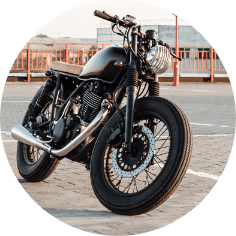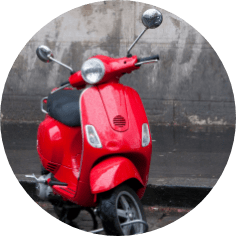-
 Know your vehicle
Know your vehicle
We strongly recommend learning about your motorcycle's model by reading the owner's manual. It will help you in preventing many vehicle issues. -
 Change Oil
Change Oil
Change the oil every 5,000 or 10,000 km, depending on the model of the motorcycle. An oil change is done every year during the annual maintenance check-up of the motorbike. Two important factors in how often you need to change the oil is the age of the bike and the type of oil you use. -
 Brake Pads Maintenance
Brake Pads Maintenance
It is recommended to get the brake pads checked out every 10,000 or 15,000 km depending on where you live and how much you drive. -
 Tyre Maintenance
Tyre Maintenance
It is advisable to check the pressure and the grooves of the tyres before beginning a journey, ensuring that they do not have cracks, holes, tears or any wear that can put your safety at risk. Once the tyres are worn, don't wait too long to change them. -
 Clean Air Filter
Clean Air Filter
To keep your motorbike healthy, clean the air filter thoroughly every 10,000 km. This filter prevents dirt from entering the engine of your bike. If you live in an area where you are driving through streets with a lot of dust or dirt, you should clean the air filter as often as every week.








































